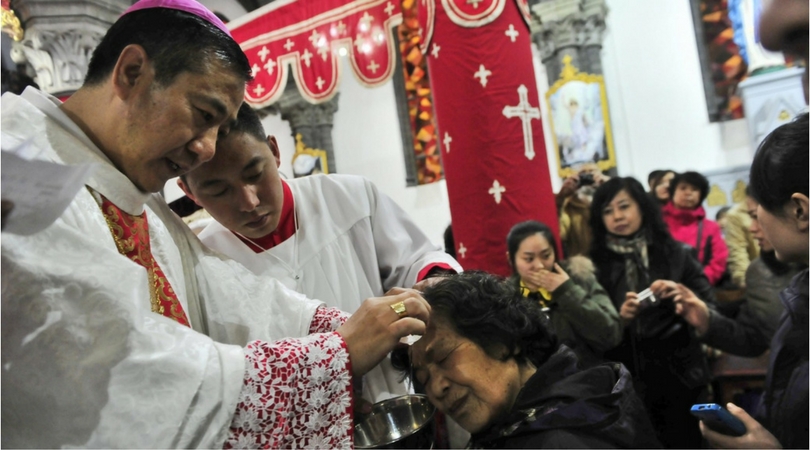China province bans Priests from hospitals
A province in China is banning priests and ministers from entering public hospitals and forbidding patients to pray there as well.
Aug 23, 2016

WENZHOU: A province in China is banning priests and ministers from entering public hospitals and forbidding patients to pray there as well.
On Friday, public officials issued a circular informing hospitals in China's eastern coastal city of Wenzhou that "all forms of religious activity are banned." The notice was posted in the main hall of the Central Hospital there. An employee of the hospital told Radio Free Asia that it's not only forbidden for patients to pray there, but now "it is also forbidden to receive ministers and pastors."
Wenzhou, a prominent city in the eastern province of Zhejiang, is ground zero for the growing persecution in China. What started in this province as a campaign by communist authorities in 2014 to remove crosses from outside church buildings now seeks to remove pastors and vocal prayer from within hospitals.
Nurses and hospital employees are being ordered by government officials to explain the new rules to patients and all visitors. One employee relates, "The religious activities in the hospital have never been encouraged. But some prayed silently, which is understandable: On the other hand we are all here to support patients. But others made noise, reading the Bible or reciting prayers aloud."
If anyone violates the new protocols, doctors or nurses are to immediately correct them, the employee added.
According to a report by UCAnews.com, 2014 saw a 40-year peak in religious persecution, with 500 churches damaged or destroyed in the province of Zhejiang. By Christmas of that year, the number had exploded to 1,500, with the government using various building code violations as the pretext to carry out its destruction.
Authorities soon began focusing less on church façades as they sought to interfere more inside Christian church buildings. State officials attended disgruntled church gatherings on Sundays to silence critical voices. They also posted propaganda and even Bible verses that supposedly lent support to government doctrine.
In March of this year with their cross removal campaign, communist officials turned their attention from protestant churches to Catholic ones. The diocese of Wenzhou witnessed for the first time an exterior cross removed by city officials from a Catholic church.
In July, the government forbade China's youth from travelling to World Youth Day in Krakow. They even dragged pilgrims off a plane waiting to take off, thwarting their plans of participating in the event.
As persecution mounts, Catholic priests are being forced to accept the state-run Chinese Patriotic Catholic Church (CPAC) or else be forbidden from working in the country. The Vatican is currently involved in negotiations with China, which is attempting to strong-arm the Vatican into letting them appoint bishops to oversee the country's authentically Catholic "underground" Church.
The CPCA, China's "official" state-run church, was started in 1957 by communists in opposition to the Catholic Church. The CPCA does have valid sacraments but doesn't recognize the supreme administrative, legislative and judicial authority of the Pope. The authentic Catholic Church was then outlawed and driven underground. The true Catholic Church in China is thus called the underground or unofficial Church.
The persecution of Catholics, which started in 1957, is growing rapidly. In spite of this, the spirit prevails of their greatest prelate, Cdl. Ignatius Kung, who was incarcerated for 30 years by the Chinese government for not joining the CPAC.
The sole reason Cdl. Kung endured torture and imprisonment rather than join the schismatic CPAC was summed up in a statement made by St. Ambrose in the fourth century. "Ubi Petrus, ibi Ecclesia," which translates, "Where Peter is, there is the Church."
At his trial in 1960, Cdl. Ignatius Kung proclaimed, "I am a Catholic bishop. If I leave the Holy Father, not only would I not be a bishop, I would not even be a Catholic."--Churchmilitant.com







Total Comments:0